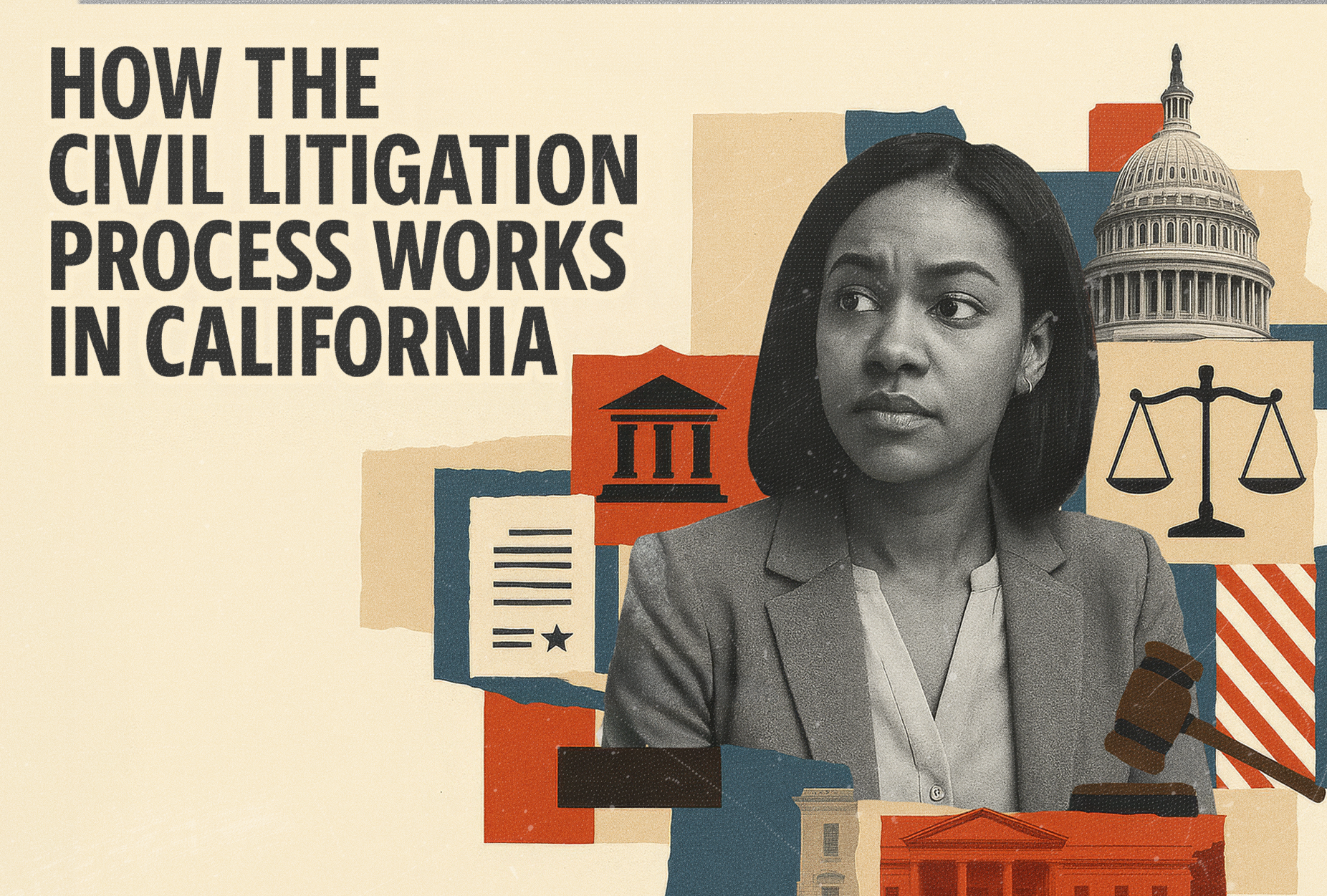How the Civil Litigation Process Works in California


Pursuing legal action against another person or party probably feels like an incredibly unfamiliar topic. You may have never pictured yourself navigating a lawsuit in your lifetime. Now, you’re faced with no other options to gain the compensation you need to start moving forward with your life.
Your employment discrimination lawyer in California will walk you through this process and answer any questions you may have. However, this guide can also give you insight into what the civil litigation process looks like in California and what to expect.
Explaining the Basic Civil Litigation Process
Civil litigation is the process of resolving disputes between two parties that do not involve criminal actions. You might file a civil lawsuit against your employer for violating employment laws or discriminating against you.
These suits are also common after:
- Car accidents
- Medical malpractice
- Family law disputes
- Contract disputes
- Personal injury claims
The basic civil litigation process in California follows these steps:
1. Filing Legal Pleadings With the Local Civil Court
The first step in initiating a civil case involves filing a complaint with the local county court. As the plaintiff, you will file a complaint that includes a description of how the dispute arose, the ways the defendant has caused you harm, and the legal basis through which you wish to hold them responsible for their actions.
Your attorneys will need to formally “serve” the complaint to the defendant through legal service of process. The defendant will then have the opportunity to “answer” the complaint with their own description of the legal issues discussed, any allegations against you, and any inaccuracies they found in your original complaint.
If the defendant fails to respond, the court may grant a default judgment.
2. The Discovery Phase: Gathering Information To Support Your Case
Next, the discovery process begins. This allows you and the defendant to gather information and evidence to strengthen your arguments.
You and your litigation attorney can gather this information in several different ways:
- Written interrogatories, where you question witnesses and other relevant parties under oath
- Oral depositions in which your attorney will question witnesses and record their answers
- Examinations of the scene where the incident occurred
- Petitions and court orders as formal requests for relevant information from the defendant
- Testimony from expert witnesses, such as doctors or other professionals
Often, both parties can resolve the dispute during the discovery phase. There is a good chance that your civil litigation process will settle out of court through settlement negotiations. You may also realize there are no genuine disputes in the case, leading the court to issue a summary judgment without a full trial.
3. Pre-Trial and Trial Stage
Before the trial starts, your attorney and the defendant will have the opportunity to file pre-trial motions requesting the court to decide on certain matters, such as excluding certain evidence or irrelevant documents from the case.
Your civil procedure will either be a bench trial, with just a judge, or a jury trial. A typical civil trial follows these steps:
- Both sides make opening statements, which are outlines of their arguments and the facts of the case.
- Your attorney presents your case as the plaintiff in the trial.
- Your attorney presents evidence and calls any witnesses to be questioned, and the defendant has the opportunity to cross-examine your witnesses.
- The defendant presents their oral arguments, evidence, and witnesses.
- Both sides make closing arguments.
- The judge or jury deliberates until they have reached a verdict.
4. Post-Trial and Appeals From Either Party
If either side disagrees with the verdict, they can appeal it to a higher court — the appellate court. This would be reasonable if either party believed there to be a legal error in the trial.
Tips for Navigating the Civil Litigation Process Successfully
While the civil litigation process might feel overwhelming, the following tips can significantly ease the process:
- Hire a civil litigation lawyer who has experience litigating your specific type of case
- Be open to settling out of court, especially if the opposing party presents a reasonable settlement offer and terms
- Understand that your case will likely be delayed at least once as higher-priority cases enter the scheduling order
- Rely on your attorney for legal help and guidance as much as possible
Let D.Law Guide You Through Your Employment Lawsuit
Our attorneys at D.Law are here to help you take action against your employer and guide you through the civil litigation process in California. We’ll help you adhere to the state’s statute of limitations and do everything we can to streamline the legal process. Call 818-275-5799 today to request a consultation.

Ready to get started?
Contact us now for a free consultation to find out how we can help you.



















